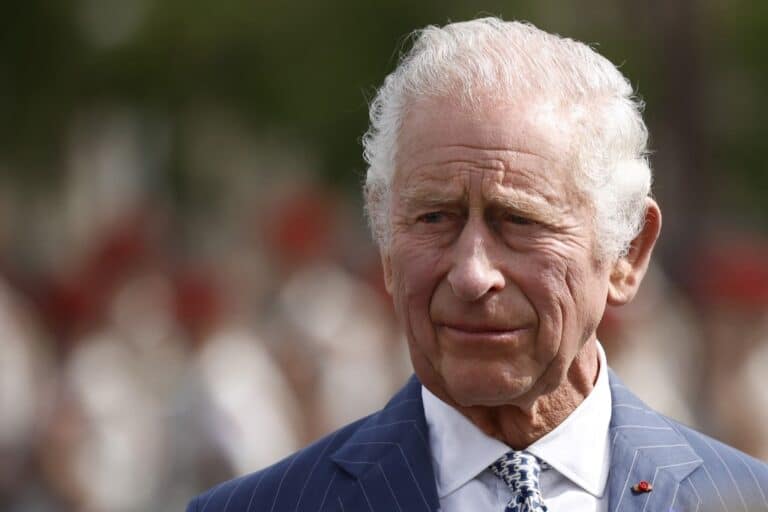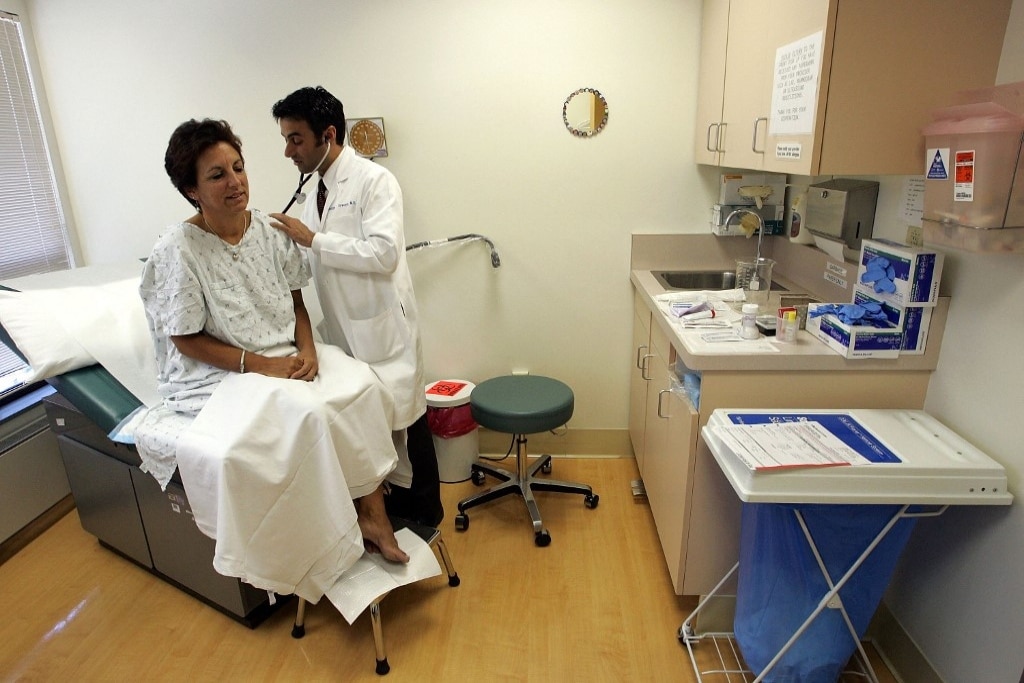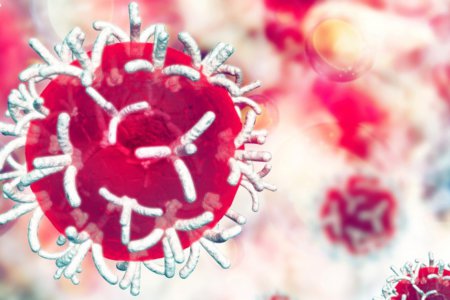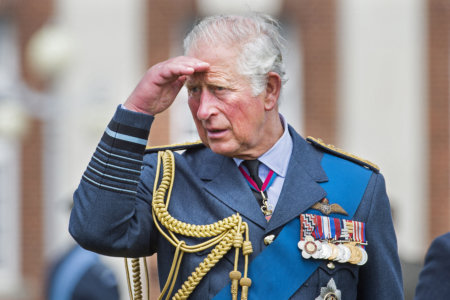
It’s more important than ever for more people to get involved in the treatment and study of cancer.
The disease affects everyone, young or old, rich or poor. Recently, King Charles III has been diagnosed with a cancer type that remains undisclosed.
The diagnosis was reportedly made during his treatment for an enlarged prostate, but it’s not prostate cancer, a Royal source told Reuters.
When he was starting his “corrective procedure” for the enlarged prostate, Buckingham Palace said the king wanted his condition publicised to encourage other men to have their prostates checked in line with public health advice.
Like most things to do with the royals, his latest diagnosis has shocked many, especially since it follows the UN News finding that cancer rates are on the rise and expected to increase by 77% by 2050.
Why is cancer so common?
One in two people will develop some form of cancer during their lifetime, according to the UK’s National Health Service.
The World Health Organisation (WHO) lists cancer as the second leading cause of death globally, with approximately 10 million deaths in 2020 alone.
Why is cancer so common? The increase in cancer cases is attributed to many factors, including ageing populations, environmental factors and advances in diagnostic techniques that detect cancers earlier.
Studies have shown that certain lifestyle factors, such as smoking, poor diet, lack of physical activity and exposure to carcinogens, significantly increase the risk of developing cancer as well.
And cancer isn’t just affecting older people. Global cases of early-onset cancer increased from 1.82 million in 1990 to 3.26 million in 2019.
Early detection through regular screenings and adopting healthy habits like maintaining a balanced diet, exercising regularly, avoiding tobacco and excessive alcohol consumption and protecting yourself from harmful UV radiation can help reduce the risk of developing cancer.
But what if you want to protect or help more people with cancer?
Considering the growing impact of cancer, choosing to pursue a degree that could contribute to fighting this disease is not only noble but also incredibly useful.
Your efforts, whether through a medicine degree or beyond, could make a significant difference in the lives of those affected by cancer.
There are many areas of expertise that can play a role in the fight against cancer: prevention, diagnosis, treatment, support, and more.

Cancer biology involves research into cancer to identify causes and develop strategies for prevention, diagnosis, treatment and cure. Source: AFP
Study of cancer: 8 best degrees to help treat, fight cancer
Cancer Biology
In this field, you learn what causes cancer to develop, progress and spread.
You’ll cover cell biology, genetics, epigenetics (how your behaviours and environment can cause changes that affect the way your genes work) and molecular biology, which will give you insights into the mechanisms behind cancer.
With this knowledge in hand, you can develop innovative treatments and tools to diagnose better.
For example, you may work on therapies that attack cancer cells while sparing healthy ones or explore ways to harness the immune system to recognise and destroy tumours.

An oncologist is a doctor who treats cancer and provides medical care for a person diagnosed with cancer. Source: AFP
Oncology
Oncology involves the treatment and study of cancer. It covers many aspects, including medical, radiation and surgical oncology.
As a medical oncologist, you specialise in diagnosing cancer and administering chemotherapy (using powerful chemicals to kill fast-growing cells in your body).
Radiation oncologists use technology to deliver radiation doses to cancerous cells, while surgical oncologists perform procedures to remove tumours and surrounding tissues.
Aside from that, you also play a role in cancer prevention and education, raising awareness about risk factors and promoting early detection through screenings.
The best part is that you will be at the frontlines of contributing to improving survival rates and enhancing the quality of life for those affected by cancer.
Immunology
A degree in immunology is one of the best degrees for those who want to join the fight against cancer. But what is it?
It’s a degree that focuses on your immune system and how it can be trained to recognise and destroy cancer cells.
By pursuing this degree, you are equipping yourself with the knowledge and skills to contribute to developing immunotherapies, which help the immune system recognise and attack cancer cells.
In this field, you spend most days in the lab, experimenting with immunotherapeutic approaches that could save many lives one day.
The good news is that immunotherapy has shown great benefits, with some patients experiencing long-term remission from untreatable cancers.

Cancer is considered a genetic disease and results from a number of genetic changes and mutations in certain genes. Source: AFP
Genomics
If you have always been interested in genetics and how it causes cancer, then genomics is the best degree for you to pursue.
By studying the cancer genome and discovering gene patterns, you’ll be able to identify specific mutations and variations associated with different types of cancer.
As a genomics researcher, did you know researchers can develop targeted gene therapies that attack cancer cells without affecting healthy tissue?
Physiology
Physiology focuses on how living organisms, like you and me, function. From our organs to our biological compounds, it gives us an overview of how our bodies operate.
And that includes when our cells malfunction.
Given that cancer arises from the uncontrolled growth of cells, understanding physiological mechanisms is essential to know the underlying causes and interventions to fight cancer.
In this line, you can explore the dynamics of cellular processes, metabolic pathways and molecular interactions.
 Early diagnosis, thanks to more advanced medical equipment, can help patients fight cancer better. Source: AFP
Early diagnosis, thanks to more advanced medical equipment, can help patients fight cancer better. Source: AFP
Biomedical engineering
While biomedical engineers don’t treat cancer directly as doctors and nurses would, did you know that by choosing biomedical engineering, you can still play a big part in contributing towards the fight against cancer?
Biomedical engineering combines engineering principles with healthcare and biology.
You work alongside doctors, researchers and therapists to create cutting-edge systems and machines to fight cancer.
You could join a research team like the one at the Akay Lab at the University of Houston, Texas. They’ve crafted a microfluidic brain cancer chip that administers a precise mix of cancer-fighting drugs.
Or head over to Harvard, where their team has created an injectable vaccine targeting acute myeloid leukaemia (AML).

Epidemiology is the study of how diseases occur in different groups of people and why. Source: AFP
Epidemiology
Epidemiology also makes the list as one of the best degrees to pursue to help people fight cancer.
Epidemiology studies how diseases spread and why they occur in different populations. Unlike all the degrees above, this has less focus on science and more on public policy and social services.
Often offered as a master’s degree, you’ll still need a degree in biology or related fields. However, instead of working on research and treatment in a lab, you’ll be in the field and government departments investigating patterns, frequency, and both causes and effects of disease in the human population.
You will be looking at all the factors that influence cancer development, from dietary habits to environmental exposures.
In this line, you will find three main approaches. Descriptive epidemiology shows cancer trends and frequencies within specific populations.
Analytic epidemiology takes it one step further, looking to pinpoint the causes and risk factors associated with the onset of cancer.
Clinical epidemiology, on the other hand, focuses on crafting screening programmes and evaluating the impact of prevention strategies on overall cancer outcomes.

When diagnosed with cancer, about 30% of patients can suffer from psychological distress. Source: AFP
Psychology
And if you aren’t interested in medicine or research but still want to contribute to the fight against cancer, you could always choose to study psychology.
Getting cancer changes anyone’s life. Their spouses and families are often deeply scarred too. Many live with feelings of anxiety, depression and distress.
So as a psychologist, this is where you step in. Psychologists play an important role in offering support and interventions to address the psychological challenges that come with cancer.
Through psychological assessments, you will be able to gauge patients’ emotional states and provide counselling as they navigate their diagnosis and treatment journey.
As a psychologist, you won’t just work one to one with patients and their families. You’ll also be able to work in teams in supportive and palliative care (specialised medical care for people living with a serious illness) settings, such as community centres, clinics and hospitals.
If you are interested, check out the University of Denver’s Oncology Psychology programme, which offers postgraduate-level coursework and provides you with the opportunity to work in cancer centres across Colorado.









